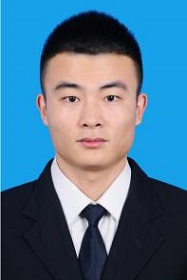
Mingxuan Mao
Chongqing University ChinaTitle: The effect of environmental corporate social responsibility on industrial SMEs’ innovation
Abstract:
As a new trend of photovoltaic (PV) power generation comprehensive utilization project, "PV + expressway" is in the embryonic stage of development. Compared with the traditional PV power generation system, the shadow distribution of vehicles with strong random uncertainty and rapid change speed is formed by the high-speed driving vehicles in the PV highway. On the one hand, it is easy to induce the series and parallel mismatching of the pavement PV arrays, resulting in the power losses. On the other hand, it leads to the complex fast changing multi peak phenomenon of the output characteristics of the pavement PV arrays, increases the difficulty of maximum power point tracking control, and further intensifies the power losses. In order to solve the above problems, this project takes highway the pavement PV array as the research object, explores vehicle shadow distribution of PV highway based on vehicle traffic flow theory, establishes multi scene mathematical model of highway pavement PV array, analyzes output characteristics and maximum power point distribution of the pavement PV array under dynamic random vehicle shadow, and studies the optimal design of the pavement PV array configuration based on the reverse analysis method and the maximum power point tracking strategy of the pavement PV array based on self leading algorithm library. The purpose of this project is to reduce the power loss of the highway pavement PV array under the shadow of dynamic random vehicles, improve the power generation efficiency of pavement PV array, and lay a theoretical foundation for the development and application of PV highway, which has important engineering value and scientific significance.
Biography:
Mingxuan Mao received the Ph.D. degree in control theoryand control engineering at Chongqing University in 2017.From June 2016 to June 2017, he wasa visiting scholar in University of Leeds, Leeds, U.K., where he was engaged in research on advanced control theory and applications for renewable power generation and power electronics. His research interests include renewableenergy systems, power electronics converterand artificial intelligence algorithm.
